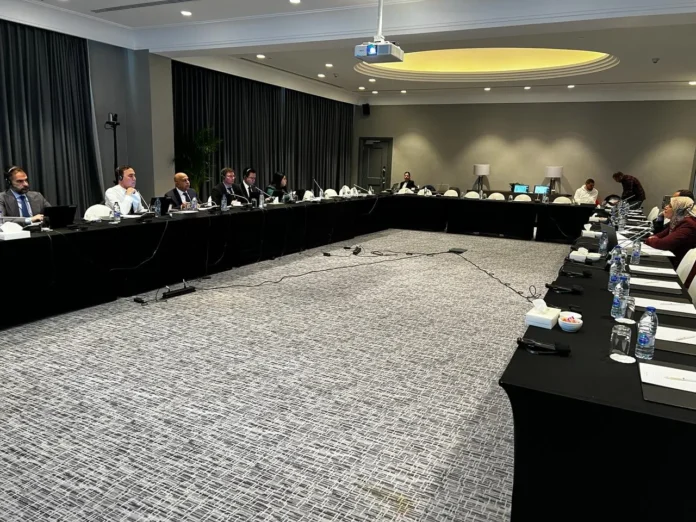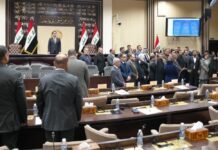The International Monetary Fund reaffirmed on Wednesday that Iraq’s GDP growth, excluding oil, had improved.
“The Iraqi delegation, headed by Minister Taif Sami, held discussions with International Monetary Fund experts within the framework of Article Four consultations, held in the Jordanian capital, Amman, during the period of 27 to 29 February,” read a statement from the Ministry of Finance that Al-Rabaa obtained.
In addition to the steps taken to lessen the effects of foreign conflicts on the economy, the statement clarified that the discussions would center on the Iraqi government’s reform program for the country’s economy, as well as the steps taken to strengthen financial and banking policy, digital infrastructure, financial inclusion, and public debt issues.
“The road map towards increasing non-oil revenues and enhancing coordination between financial and monetary policies in Iraq will be discussed during the consultations,” he said. “In addition, joint work programs that include the IMF providing the necessary technical and advisory support for the economic reform adopted by the Iraqi government to achieve financial stability will be defined.” “and cash, improving the level of financial planning for budgets and the continuity of implementation of important development projects.”
“Iraq is making progress in the growth of non-oil domestic product and strengthening public financial management,” the statement said, praising “the government measures to improve the business climate and stimulate the investment environment.”
As evidenced by declining inflation rates and an improved balance of payments, she praised the tremendous progress made in preserving economic and financial stability as well as the significance of “maintaining economic stability and supporting social protection, as well as stimulating economic diversification and creating job opportunities led by the private sector.”





